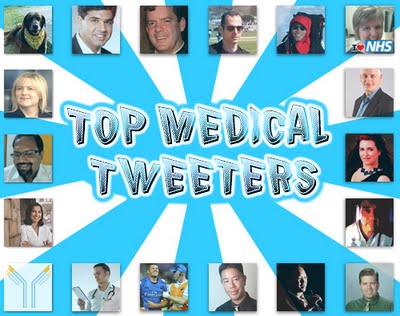April 28th, 2011 by AndrewSchorr in Health Policy, Opinion
No Comments »

Imagine you’re a pharmaceutical company product manager and your specific product helps people with a chronic illness, or a cancer that can be managed by taking a pill or an injectable medicine over many years. You want to be part of the dialogue patients have with each other. You want to be part of the community. Facebook users, and other social media participants, are increasingly forming groups around health conditions, big and small. You want to be there, because, after all, your company has invested hundreds of millions of dollars developing the approved drug and hopes this medicine, and perhaps a successor, will be on the market for a long time.
This is an exciting time on the Internet and pharmaceutical product managers want to be part of health discussions. But it is fraught with legal pitfalls and penalties that can range into the millions of dollars if the product manager, or associated marketing agencies, make even an innocent mistake. Read more »
*This blog post was originally published at Andrew's Blog*
April 26th, 2011 by Bryan Vartabedian, M.D. in Opinion, Quackery Exposed, Research
No Comments »

They’re here: Creeping researchers who see the opportunity that’s social media. Publications, position papers, professional guidelines and policies on social media are appearing faster than you can say ‘ARA grant opportunity.’ A simple search will show that some of these authors have little more than a token feel of what its like to be a doctor in the social space. And they’ve got just enough of a footprint to fool the editors. “They’ve actually got a Twitter account. They must know what they’re talking about.”
The next time you see a policy or a guideline coming from a society or medical professional organization, deep search its authors. Look to see if they have the experience and social scars to guide you as a professional. If you’re a professional society or journal, be sure to do the same. Thoroughly vetting the social media experience of authors should be part of peer review when it comes to medical research and policy generation in social media. Otherwise expect those who have never experienced social media to position themselves as the new voice of authority. Read more »
*This blog post was originally published at 33 Charts*
April 25th, 2011 by Berci in Opinion
No Comments »

 I’ve been building a medical community on Twitter for years and now I have about 6000 followers including doctors, medical students, patients, medical librarians, scientists, etc. Whenever I have a question about my profession, PhD, or social media, generally I receive a valid and relevant answer in minutes. I don’t always know who might have the answer for my questions, that’s why it can be beneficial to put that into a large pot full of people with similar interests and wait for the answer. There is always someone with an answer or there is always someone in the communities of my community who might have the final solution.
I’ve been building a medical community on Twitter for years and now I have about 6000 followers including doctors, medical students, patients, medical librarians, scientists, etc. Whenever I have a question about my profession, PhD, or social media, generally I receive a valid and relevant answer in minutes. I don’t always know who might have the answer for my questions, that’s why it can be beneficial to put that into a large pot full of people with similar interests and wait for the answer. There is always someone with an answer or there is always someone in the communities of my community who might have the final solution.
That’s why I use Twitter for everyday communication, even though my main platform is my still blog.
It’s an honor to be included in the world’s top 10 medical Twitter users’ list. Last year, I was selected by The Independent and later my Twitter story was mentioned in the New York Times. Although, I publish the core content of my activities on my blog instead of Twitter, but now that is the place to track interesting medical stories. According to Peer Index, I’m the 6th in a list of 1000 medical Twitterers. Read more »
*This blog post was originally published at ScienceRoll*
April 15th, 2011 by Dr. Val Jones in Announcements, Quackery Exposed
10 Comments »
 A few days ago I published a blog post about Dr. Mehmet Oz NOT being a trustworthy source of health information. It set off a firestorm of blog comments, tweets, and Facebook sharing – all because people (like me) had developed sincere concerns about the safety of viewers who might take his advice to heart. The outpouring of commentary, and the rapidity of the response made me wonder: can we harness this power for future good? Could we counter Dr. Oz’s (and others like him) misinformation with peer-reviewed content that’s easily accessible by Twitter and Facebook?
A few days ago I published a blog post about Dr. Mehmet Oz NOT being a trustworthy source of health information. It set off a firestorm of blog comments, tweets, and Facebook sharing – all because people (like me) had developed sincere concerns about the safety of viewers who might take his advice to heart. The outpouring of commentary, and the rapidity of the response made me wonder: can we harness this power for future good? Could we counter Dr. Oz’s (and others like him) misinformation with peer-reviewed content that’s easily accessible by Twitter and Facebook?
I chatted with some colleagues and concerned patient advocates on Twitter (including @academicobgyn @scanman @hrana @AmberMBaylor @DamonRamseyMD @RyanMadanickMD @jalbietz @DrElizabethLee @FaceliftMD @goodwillstacy @PWestcott ), and we all agreed that it would be a great service to have vetted health tweets available for people to read and retweet. If enough of us were regularly engaged in retweeting sound health stories and information, we could potentially drown out the “miracle cures” and snake oil that drives us all nuts.
So how would this work?
I’d like to get a small group of volunteer experts together – healthcare professionals committed to science and common sense – and have them read and approve links before they are promoted on Twitter. I have created a new Twitter account called “HealthyRT” – the volunteer experts will have access to this account and can promote content that is medically sound. I hope that the word will be spread about this account, and people will subscribe to the feed and RT links that they find helpful. In this way, everyone on Twitter has the power to RT good health content, and it takes very little effort for retweeters to be engaged.
Now, there is no guarantee that the feed will be perfect (no peer-review process is) but every effort will be made to ensure that it is not used for self-promotion or that the standards lapse over time. If there are any concerns, people can direct message the HealthyRT team and we’ll keep us on the straight and narrow with the help of the crowd (as it were).
This experiment could fail or peter out… or it may become the greatest anti-snake oil strategy in Internet history. It all depends on the commitment of the reviewers and the extent of our subscriber base. But I’m willing to give it a try… and I hope you are too!
Anyone interested in becoming a HealthyRT reviewer, please email me directly: val-dot-jones at getbetterhealth.com.
Everyone who’d like to help to promote good health content – and drown out the bad – please subscribe to HealthyRT and retweet it as much as possible.
Please use the comments section here if you have ideas about how to improve this strategy. Let’s do it!
*You can follow us now at: http://twitter.com/#!/HealthyRT *
April 14th, 2011 by StevenWilkinsMPH in Opinion
No Comments »

I recently participated in a Twitter Chat about physician-patient communications. A common refrain from some of the providers in the group was that “there isn’t enough time” during the typical office visit for physicians to worry about communicating effectively. What’s up with that?
 The goal of patient-centered communications is to engage the patient in their own health care. While most physicians endorse the concept of patient centered communications, many seem reluctant to employ such techniques in their own practice. Why? I suspect that many fear that too much patient involvement will increase the length of the visit.
The goal of patient-centered communications is to engage the patient in their own health care. While most physicians endorse the concept of patient centered communications, many seem reluctant to employ such techniques in their own practice. Why? I suspect that many fear that too much patient involvement will increase the length of the visit.
Take the patient’s opening statement aka “patient agenda” in patient centered lingo. This is where the doctor asks the patient why they are there. The resulting patient narrative is an opportunity for the physician to obtain valuable information to help assess the patient. Patient centered advocates recommend that physicians use open-ended questions like “what brings you in today” to solicit the patient’s concerns and agenda. Active listening by the physician and paying attention to the patient’s emotional cues are also hallmarks of patient centered communications.
The reality is that regardless of how they are asked, patients are often not able to complete their opening statement. Read more »
*This blog post was originally published at Mind The Gap*






 A few days ago I published a blog post about
A few days ago I published a blog post about 









